 (The affiliations and positions listed in this interview are at the time of publication of the
interview in 2017.)
(The affiliations and positions listed in this interview are at the time of publication of the
interview in 2017.)
STAKEHOLDER INTERVIEWSPerspectives from 15 global health leaders on GHIT's catalytic role and
Japan's transformational contributions to global health R&D

POLICY
01
Dr. Mark Dybul
Former Executive Director
The Global Fund to Fight AIDS,
Tuberculosis and Malaria
“We can end these three epidemics; the only way to do that is by working together.”
How and why was the Global Fund created?
The Global Fund is the operational manifestation of an act of global solidarity to bring everyone together from countries that have a lot of resources—high-income countries like Japan—to low-income countries that have massive disease burden to fight HIV, tuberculosis, and malaria, with a mission and vision to end these three epidemics. Malaria and tuberculosis are documented in the very first recorded medical history. In fact, there are still cases of tuberculosis periodically in Japan. HIV is the modern plague. We can end these three epidemics; the only way to do that is by working together.
The Global Fund is a public-private partnership bring everyone together around that remarkable mission and vision. How we were created, actually, is great because our birthplace was in Japan, at the Okinawa G8 Summit. The leadership at the time (in 2000), including UN Secretary General Kofi Annan and President Obasanjo from Nigeria, put together the concept of a global fund and together they moved it forward. The G8 adopted it and advanced it. Since then, we have been able to support programs that have saved 20 million lives. It's pretty extraordinary and put us on the trajectory—the right side of the tipping point to actually—to achieve that bold vision of ending the epidemics as the Sustainable Development Goals (SDGs) call on us to do.
“To accelerate, save more lives and prevent more infections, we need constant innovation and new technologies.”

You mentioned Japan's role in the establishment of the Global Fund. What is the role of Japan in the Global Fund today?
Japan has played a tremendous role in the Global Fund from the beginning, including the G8 Summit in Okinawa, where we were born. Actually, Prime Minister Abe was there as a key team member with then-Prime Minister Mori. Japan has been one of the largest funders of the Global Fund and is currently one of our top financiers. But it's not just the origins and the money that have been important. From the beginning, Japan has been an intellectual leader. The country's academic community, non-governmental organizations and advocacy community, and the Japanese government—regardless of which party is in power—and a cross-party group of Parliamentary members, have all strongly supported the Global Fund.
In addition to monetary, political, and advocacy support, Japan also provides intellectual and policy leadership for the Global Fund through its prioritization of universal health coverage, a policy Japan implemented domestically in the 1950s, and human security. As Prime Minister Abe and the Japanese government have highlighted, both policies proactively promote investing in solutions that facilitate access to health care and education that will lead to economic opportunity. The policy leadership the government brings to our Board is incredibly valuable.
What role does the private sector in Japan play in the Global Fund's work?
Japan has contributed its know-how and brain power on productivity and commodities since 2009. Between 2009 and 2016, the Global Fund purchased US$440 million worth of commodities from companies in Japan, including new and innovative products. One of the best and most effective drugs against multidrug-resistant tuberculosis is produced by Otsuka. We see new and innovative products that are coming forward from Japan's private sector as incredibly important. And Japanese pharmaceutical companies, namely Takeda, give resources to the Global Fund.
“GHIT is a really important innovation in and of itself.”

Why is innovation in drugs, vaccines, and diagnostics for HIV, malaria, and tuberculosis important?
First, we need new and effective vaccines if we are truly going to accelerate the end of these epidemics. We have vaccines for malaria and HIV, but they are not particularly effective. We do not have a modern-day vaccine for TB. Theoretically, we can get to the elimination of tuberculosis and malaria with the current available products, but drug resistance is a real risk, and it is inevitable when you treat so many people. For malaria, we are seeing drug resistance in the Greater Mekong subregion, not terribly far from Japan. If drug resistance is not contained, we could lose our first-line products, as they will no longer work. There is also resistance to the pesticides that we use against malaria.
A few years ago, the first new tuberculosis drugs in 50 years became available. If we look back just 20 years to when we first started treating HIV, patients were taking 15 to 20 pills a day. Now, we have three different drugs together in one pill that you take once a day, and it is far less toxic and easier to take. There is also innovation occurring to have antiretrovirals in injectable form, that will last three months and allow us to provide prevention, as well as treatment, in a much more efficient and effective way. New preventative technologies are also emerging, along with very exciting things happening with gene therapy that could, for example, make a mosquito incapable of transmitting malaria.
Yes, we can see the end of these epidemics, achieve elimination of TB and malaria, and get to control of HIV; however, to accelerate, save more lives and prevent more infections, we need constant innovation and new technologies.
“Stimulating the private sector to support global public health is an extraordinary thing.”

You mentioned the importance of partnership and global solidarity in the Global Fund's history. Partnership also forms the foundation of the GHIT Fund's structure and work in accelerating global health R&D. What are the key ways you see the GHIT Fund foster global health innovation?
GHIT is a really important innovation in and of itself. It is a great example of a public-private partnership that was created to foster R&D in a way that advances the goals of achieving universal health coverage and human security, which are cornerstone policies of Japan's health and foreign policies.
By having that leadership from the Japanese government and commitment from the Prime Minister, and fully engaging the private sector, GHIT is a model that other countries can replicate. Stimulating the private sector to support global public health is an extraordinary thing.
You have engaged in and led many public-private partnerships throughout your career. What factors do you see as key to making such partnerships successful?
Successful public-private partnerships like the Global Fund rest on a few key things—things which we just talked about GHIT. One is political leadership. Without political leadership, partnerships fall apart pretty quickly. Additionally, full engagement of the private sector and a true understanding that companies need to be responsive to shareholders, and provided with incentives to engage, are hugely important in a public-private partnership.
That's what GHIT was designed to do, to actually see the incentives that were possible to open up marketplaces because of the political leadership, but also because of the partnership and relationships that Japan has through the Global Fund, Gavi, UN system, and academic and non-profit organizations. There is a marketplace out there. Companies have to tell their shareholders that what they're investing in makes a difference.
Opening up a market, which GHIT really does, helps accelerate the beginning of the innovation through to the delivery. When you have a market, lower-cost products sold at high volume actually have a good profit incentive and deliver a good return to shareholders.
Public-private partnerships work when there's something for everyone, when we're all meeting each other's needs and expectations, and when we understand the differences among the organizations. Leveraging those differences to maximize output and outcomes is the key to create a successful partnership.
“Japan has always participated in the ideas and the resourcing, as well as the private sector providing innovative commodities, and looking to the future and continuing to stimulate those ideas.”

Looking ahead to the next 5-10 years, what are your hopes for how Japanese entities will help transform global health policy?
If Japan does over the next 15 years what it has contributed over the last 15 years, we'll be in great shape. This includes continuing their financial contributions. Prime Minister Abe made a very large commitment to global health as part of last year's G7 Ise-Shima Summit. Japan has also shown tremendous leadership around the SDGs in the government's Universal Health Coverage commitment. In addition to the 2016 G7 Summit, Tokyo International Conference of Africa's Development VI (TICAD VI) was held in Africa for the first time, and it was a tremendous success. GHIT and the Global Fund received a tremendous contribution from the US$ 1.1 billion for global health, which was split across several organizations and announced by Prime Minister Abe.
But this is not just about financial resources. The resources support the ideas that came from Japan, including Universal Health Coverage, human security, and then link them to the private sector. Japan has always participated in the ideas and the resourcing, as well as the private sector providing innovative commodities, and looking to the future and continuing to stimulate those ideas.
“There can be a tendency to turn inward during periods like this, look backward and live in fear. When we live in fear, there's a constant companion of doubt and hopelessness that often goes along with that. However, when we choose not to live in fear, when we respond by looking outward into the future, with hope, we can solve anything.”

How do you see the current geopolitical climate around over the world affecting the global health landscape?
I think it's a tremendously exciting time. We have great leadership from Japan and Canada. The United Kingdom and Germany just increased their contribution to the Global Fund. The G20, now under Chancellor Merkel's leadership, is pushing the importance of development and health for a safer, prosperous, world, following Prime Minister Abe's lead from the 2016 G7 Ise-Shima Summit.
It's a critical time in global health and development. The world is changing dramatically and rapidly in every way, geopolitically, economically, and we have a mass movement of people and ideas.
There can be a tendency to turn inward during periods like this, look backward and live in fear. When we live in fear, there's a constant companion of doubt and hopelessness that often goes along with that. However, when we choose not to live in fear, when we respond by looking outward into the future, with hope, we can solve anything.
That's really the lesson of the last 15 years around progress in HIV, TB, and malaria, in the reduction of poverty, and in the increase in literacy. When we all come together and look at the world in a positive way and look at what is possible, we can achieve extraordinary things.
The affiliations and positions listed in this interview are at the time of publication of the interview in 2017.

- Biography
- Mark Dybul, MD, is Former Executive Director of the Global Fund to Fight AIDS, Tuberculosis and Malaria. He has worked on HIV and public health for more than 25 years as a clinician, scientist, teacher, and administrator. Previously, Dr. Dybul was Co-Director of the Global Health Law Program at the O'Neill Institute for National and Global Health Law at Georgetown University, where he was also a Distinguished Scholar. Prior to that, he was the founding architect and driving force in the formation of the U.S. President's Emergency Plan for AIDS Relief, better known as PEPFAR. After serving as Chief Medical officer, Assistant, Deputy and Acting Director, he was appointed as its leader in 2006, becoming U.S. Global AIDS Coordinator, with the rank of Ambassador at the level of an Assistant Secretary of State. Early in his career, Dr. Dybul worked at the National Institute of Allergy and Infectious Diseases, where he conducted basic and clinical studies on HIV virology, immunology and treatment optimization, including the first randomized, controlled trial with combination antiretroviral therapy in Africa.
STAKEHOLDER INTERVIEWSARCHIVES
FUNDING
-
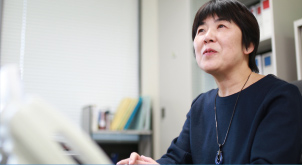
-
01
Dr. Naoko YamamotoSenior Assistant Minister for Global Health,
Ministry of Health, Labour and Welfare
#
-
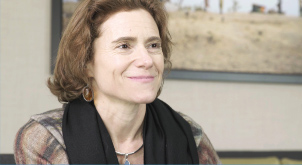
-
02
Dr. Hannah KettlerSenior Program Officer, Life Science Partnerships
Global Health Program, Office of the President
Bill & Melinda Gates Foundation
#
-
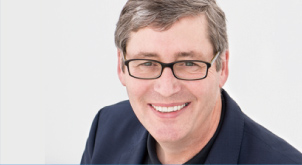
-
03
Prof. Stephen CaddickDirector, Innovations Division,
Wellcome Trust
#
DISCOVERY
-
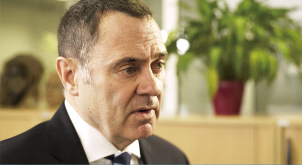
-
01
Dr. David ReddyCEO
Medicines for Malaria Venture (MMV)
#
-
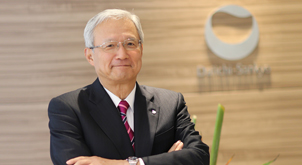
-
02
Mr. George NakayamaRepresentative Director,
Chairman and CEO
Daiichi Sankyo Company, Limited
#
-
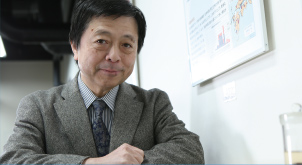
-
03
Prof. Kiyoshi KitaProfessor Emeritus, The University of Tokyo
Professor and Dean, Nagasaki University School of Tropical Medicine and Global Health
#
DEVELOPMENT
-
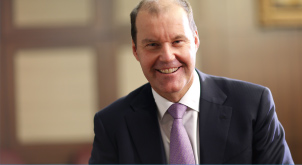
-
01
Mr. Christophe WeberRepresentative Director, President and CEO
Takeda Pharmaceutical Company Limited
#
-
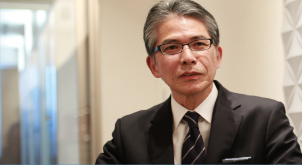
-
02
Mr. Yoshihiko HatanakaRepresentative Director,
President and CEO
Astellas Pharma Inc.
#
-
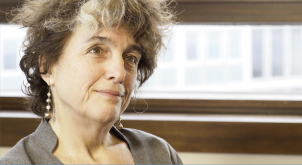
-
03
Dr. Nathalie Strub WourgaftMedical Director
Drugs for Neglected Diseases initiative (DNDi)
#
ACCESS
-
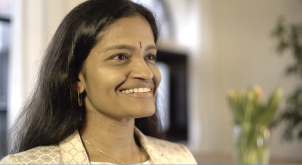
-
01
Dr. Jayasree K. IyerExecutive Director
Access to Medicine Foundation
#
-
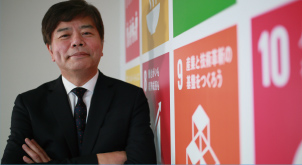
-
02
Mr. Tetsuo KondoDirector
United Nations Development Programme (UNDP)
Representation Office in Tokyo
#
-
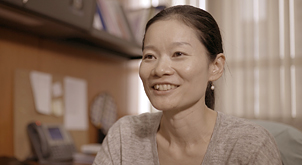
-
03
Dr. Aya YajimaTechnical Officer
Malaria, other Vectorborne and Parasitic Diseases Unit
Division of Communicable Diseases
World Health Organization Western Pacific Regional Office
#
POLICY
-
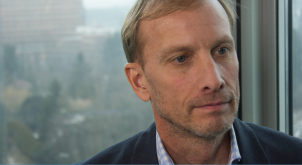
-
01
Dr. Mark DybulFormer Executive Director
The Global Fund to Fight AIDS,
Tuberculosis and Malaria
#
-
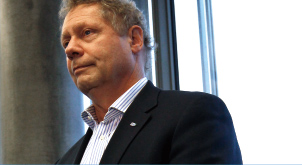
-
02
Dr. Seth BerkleyCEO
Gavi, the Vaccine Alliance
#
-
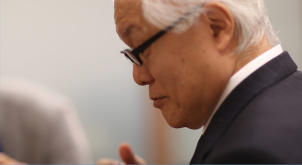
-
03
Hon. Prof. Keizo TakemiMember of the House of Councillors of Japan
Chairman, Special Committee on Global Health Strategy
of the Liberal Democratic Party's Policy
#